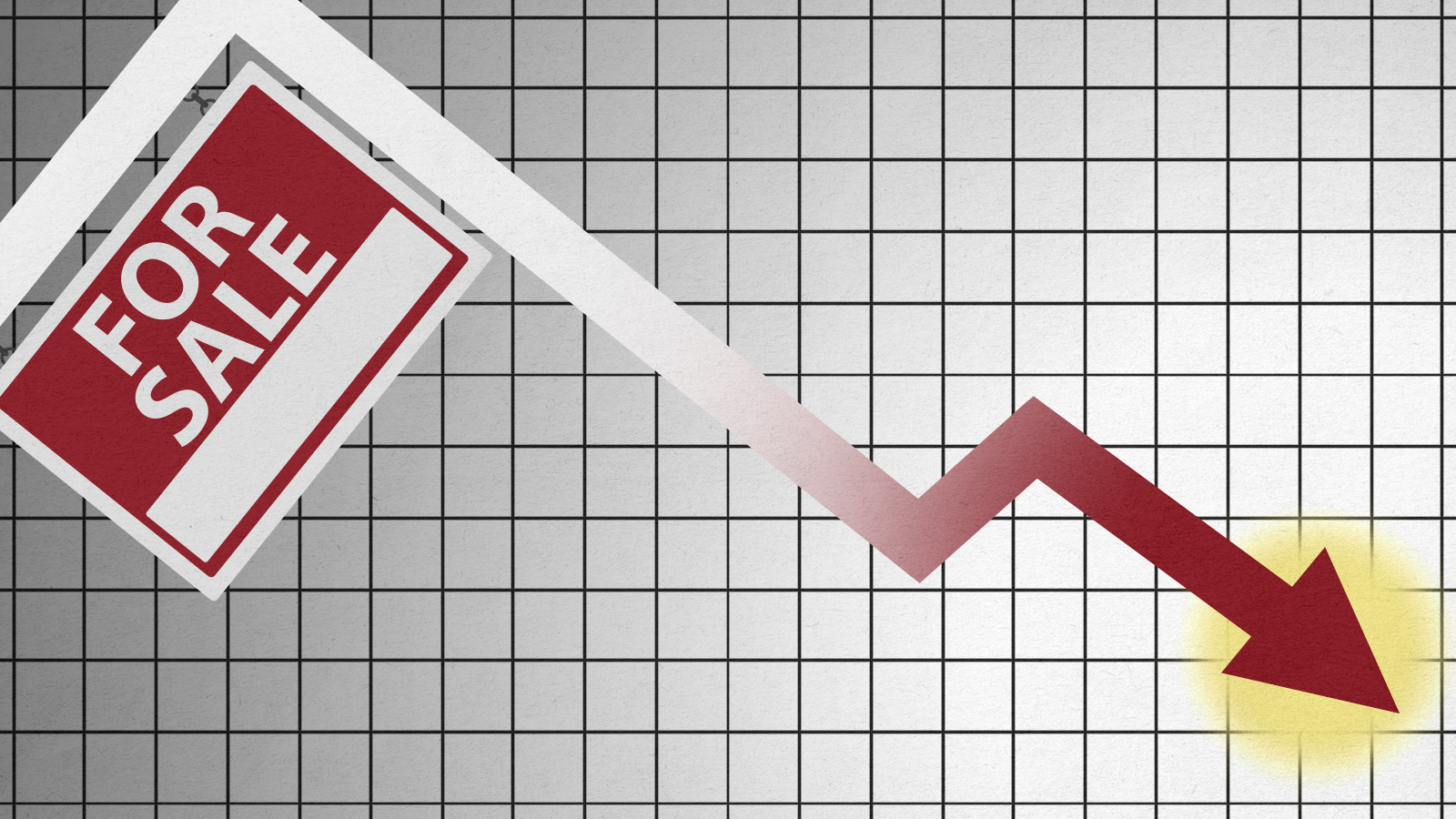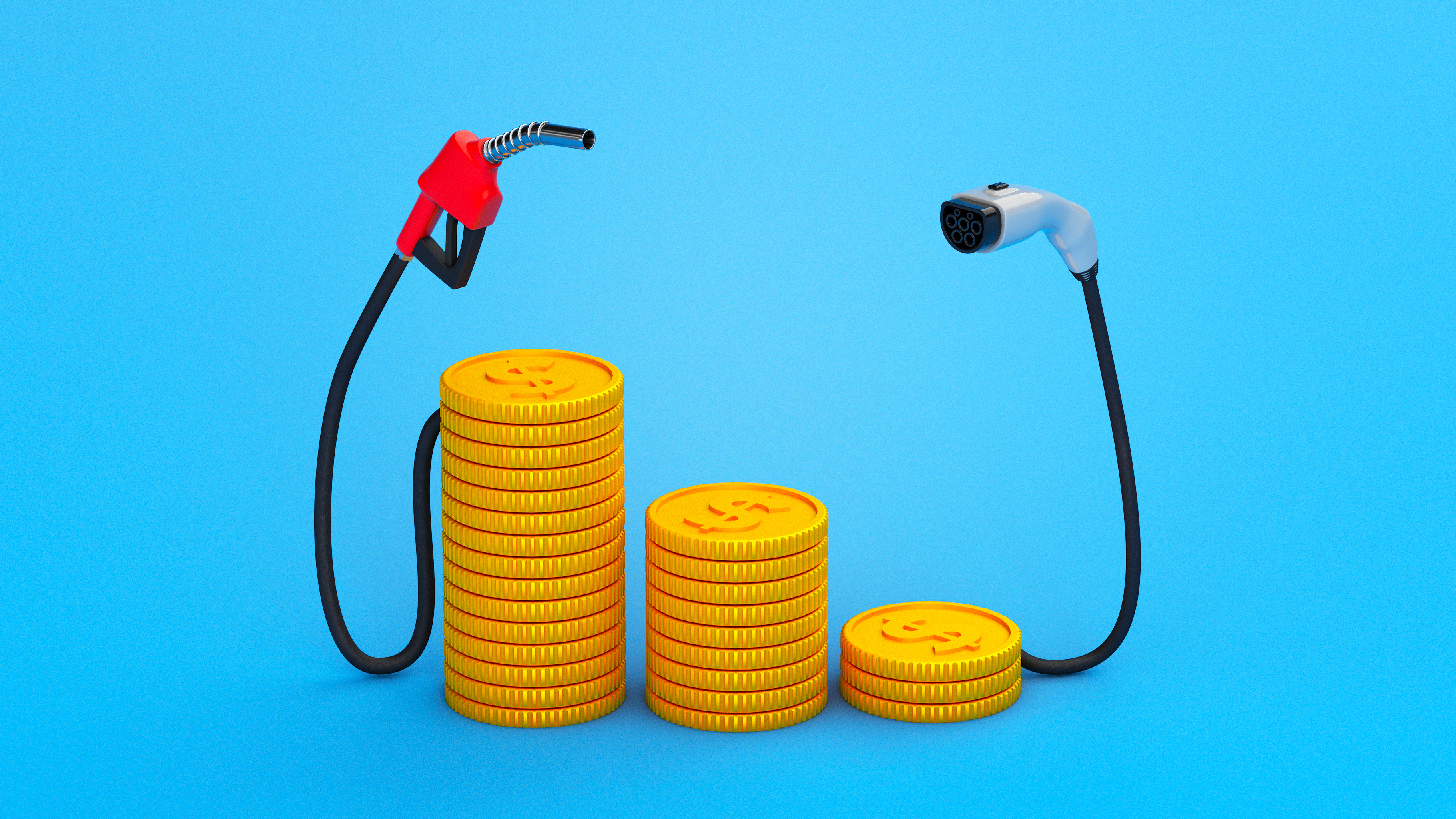What will U.S. house prices look like in 2023?
Expert predictions on home prices, mortgages, and inventory


A free daily email with the biggest news stories of the day – and the best features from TheWeek.com
You are now subscribed
Your newsletter sign-up was successful

Amid peaking prices due to inflation and murmurs of an upcoming recession, you might be wondering: What's up with the housing market for 2023? Mortgage rates started to decline in the final weeks of 2022, and demand for housing is similarly expected to fall in the new year. Price growth is also expected to cool — though by how much remains unclear. Whether you're a hopeful buyer or seller in 2023, or just someone who likes to keep tabs on the housing market, here's a closer look at what to expect this year.
Where are housing prices headed in 2023?
Expect to see home prices continue to decline in 2023 from their recent record highs. Whether that cool-off will be a slow descent or a sudden drop is up for debate. Per Forbes, "[t]here are mixed signals from economists about if and when the housing market will crash, or if it will simply 'correct' itself from the double-digit percentage jumps seen in home prices the past year."
A crash would mean a 20 to 30 percent drop in home prices, but some experts argue that the symptoms of that happening soon aren't there yet. Rather, Rick Sharga, executive vice president of market intelligence at ATTOM Data, told Forbes that he estimates "about a 5 percent drop nationally," with some markets continuing to see price increases. Kiplinger, meanwhile, predicts that "house-price growth will likely slow down to a 7 percent annual rate by year-end."
The Week
Escape your echo chamber. Get the facts behind the news, plus analysis from multiple perspectives.

Sign up for The Week's Free Newsletters
From our morning news briefing to a weekly Good News Newsletter, get the best of The Week delivered directly to your inbox.
From our morning news briefing to a weekly Good News Newsletter, get the best of The Week delivered directly to your inbox.
What about mortgage rates?
As many potential homebuyers are likely well aware, mortgage rates shot sky-high in 2022 as the Federal Reserve hiked rates in an effort to control inflation. But toward the end of 2022, rates finally started to decline — and it's expected that trend could continue in 2023.
Kiplinger explains that this drop was in reaction to the recent decline in the 10-year Treasury yield. However, mortgage rates remain "about a full percentage point higher in relation to the 10-year Treasury than would normally be expected." This could be a positive sign of things to come, at least for mortgage rates, as Kiplinger notes that "[m]ortgage rates tend to stay higher for longer when inflation is high, whereas Treasury rates tend to be more sensitive to signs of economic slowing."
When you apply via links on our site, we may earn an affiliate commission
What will housing inventory look like this year?
If you're hoping for a plethora of options as a home shopper in 2023, you might not find them. This is likely the case for existing homes, but perhaps even more so for new builds.
A free daily email with the biggest news stories of the day – and the best features from TheWeek.com
Forbes notes that "those who purchased homes in recent years at extremely low mortgage rates are staying put," evidenced by a steady decline in existing home sales in the past year. However, Kiplinger argues that there could be a chance for a recovery in existing home sales by the end of the year if home affordability improves as anticipated.
The picture is less rosy when it comes to new builds. Even though new home sales increased somewhat toward the end of 2022, Kiplinger reports that inventory may not pan out, given "an elevated share of that inventory is homes where construction has not yet started, and those projects may not materialize, given the weak conditions in the housing market."
Housing starts continued to tumble toward the end of 2022, particularly for single-family homes. Builders might continue to hold off in 2023 "amid soaring mortgage rates and elevated costs for building materials," according to Kiplinger.
Is this year a good time to buy a house?
While you might be hoping for a simple yes or no, the answer to this question is highly personal. It really depends on what your current financial situation is and what your needs are. Here are four questions to ask as you decide:
Are you ready to commit to a location?
Buying a house is a commitment — typically, it's recommended that you stay in a house for at least five years to offset the costs of the transaction, per Kiplinger. While people can and absolutely do end up selling sooner than that, it's better to ask yourself if you're really serious about settling down in a particular place before you buy.
What's your budget?
Before you get carried away with favoriting pretty homes on Zillow, see what's financially feasible. If you're already stretched thin, adding a mortgage to the mix likely isn't a great idea. And then there's also the question of how much you can spend on a home, taking into consideration that home ownership also involves costs like heating and cooling, water, etc. One trick Kiplinger offers for figuring this out: "Lenders usually require that the principal, interest, taxes, and insurance expenses be less than 28 percent of your monthly gross income."
Have you saved up for a down payment?
Even if you take out a mortgage, you'll still have to put some money down to purchase a home. The minimum required down payment is generally 3 percent, though Kiplinger says that "typical new home buyers put down 6 percent, on average." But if you want to avoid private mortgage insurance getting tacked onto your already stiff monthly mortgage payments, you'll need to put down at least 20 percent.
How's your credit score?
Having a solid credit score is key to getting approved for a mortgage and securing a competitive rate. According to Kiplinger, lenders generally look for a credit score that is at least over 670. If your credit score has some room for improvement, it makes sense to do that before applying for a mortgage. A couple easy ways to boost your credit score include paying your bills on time and maintaining a credit utilization ratio below 30 percent.
Becca Stanek has worked as an editor and writer in the personal finance space since 2017. She has previously served as the managing editor for investing and savings content at LendingTree, an editor at SmartAsset and a staff writer for The Week. This article is in part based on information first published on The Week's sister site, Kiplinger.com
New Tax Rules for 2023: Download your free issue of The Kiplinger Tax Letter today. No information is required from you.
Becca Stanek has worked as an editor and writer in the personal finance space since 2017. She previously served as a deputy editor and later a managing editor overseeing investing and savings content at LendingTree and as an editor at the financial startup SmartAsset, where she focused on retirement- and financial-adviser-related content. Before that, Becca was a staff writer at The Week, primarily contributing to Speed Reads.
-
 Ex-South Korean leader gets life sentence for insurrection
Ex-South Korean leader gets life sentence for insurrectionSpeed Read South Korean President Yoon Suk Yeol was sentenced to life in prison over his declaration of martial law in 2024
-
 At least 8 dead in California’s deadliest avalanche
At least 8 dead in California’s deadliest avalancheSpeed Read The avalanche near Lake Tahoe was the deadliest in modern California history and the worst in the US since 1981
-
 Political cartoons for February 19
Political cartoons for February 19Cartoons Thursday’s political cartoons include a suspicious package, a piece of the cake, and more
-
 How your household budget could look in 2026
How your household budget could look in 2026The Explainer The government is trying to balance the nation’s books but energy bills and the cost of food could impact your finances
-
 What is a bubble? Understanding the financial term.
What is a bubble? Understanding the financial term.the explainer An AI bubble burst could be looming
-
 The FIRE movement catches on as people want to retire early
The FIRE movement catches on as people want to retire earlyIn the spotlight Many are taking steps to leave the workforce sooner than usual
-
 Who wants to be a millionaire? The dark side of lottery wins
Who wants to be a millionaire? The dark side of lottery winsIn The Spotlight Is hitting the jackpot a dream come true or actually a nightmare?
-
 How can you find a financial adviser you trust?
How can you find a financial adviser you trust?the explainer Four ways to detect professionals who will act in your best interest
-
 What should you consider when choosing a financial adviser?
What should you consider when choosing a financial adviser?The Explainer The right person can be a big help with financial planning, investing, taxes and more
-
 What Biden's IRA means for EV tax credits: 2024 updates
What Biden's IRA means for EV tax credits: 2024 updatesThe Explainer Which cars are eligible and how much money can owners save?
-
 How to ensure you don't outlive your retirement savings
How to ensure you don't outlive your retirement savingsThe Explainer Your golden years should be enjoyed. Don't let finances get in the way.
